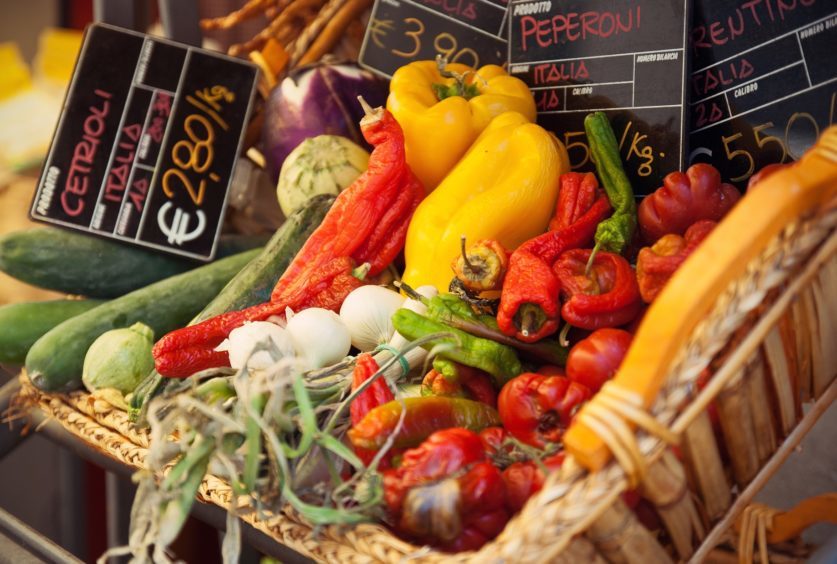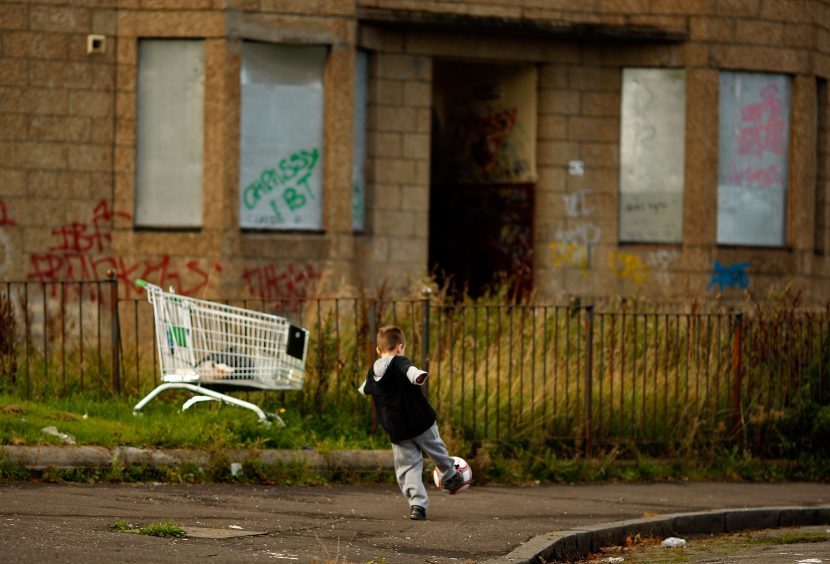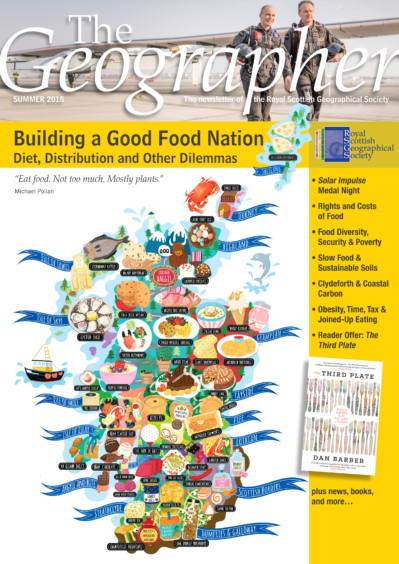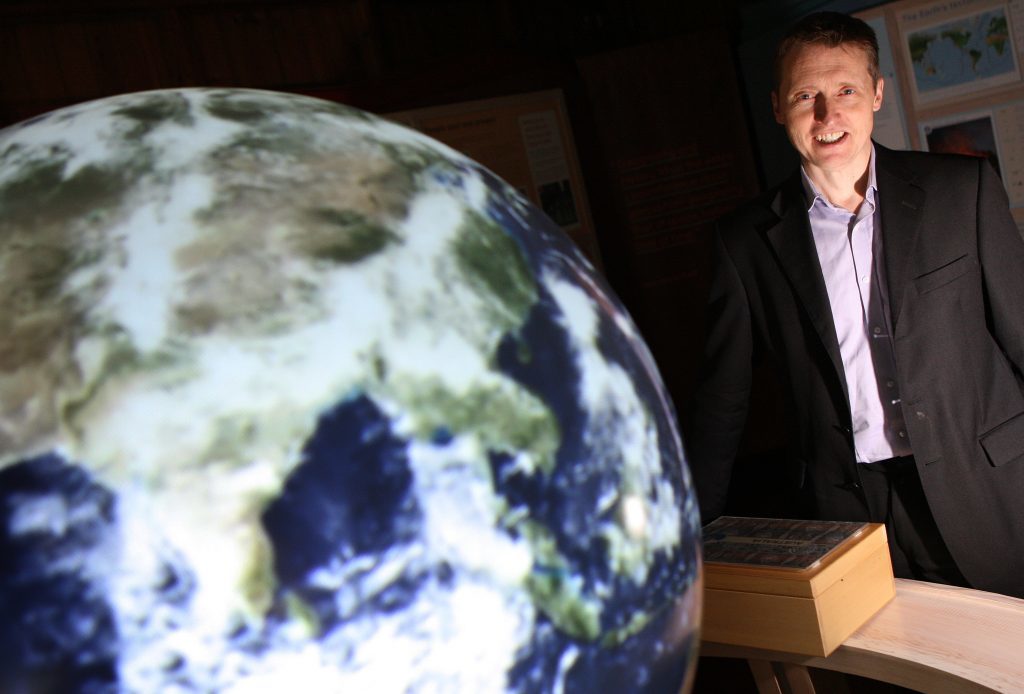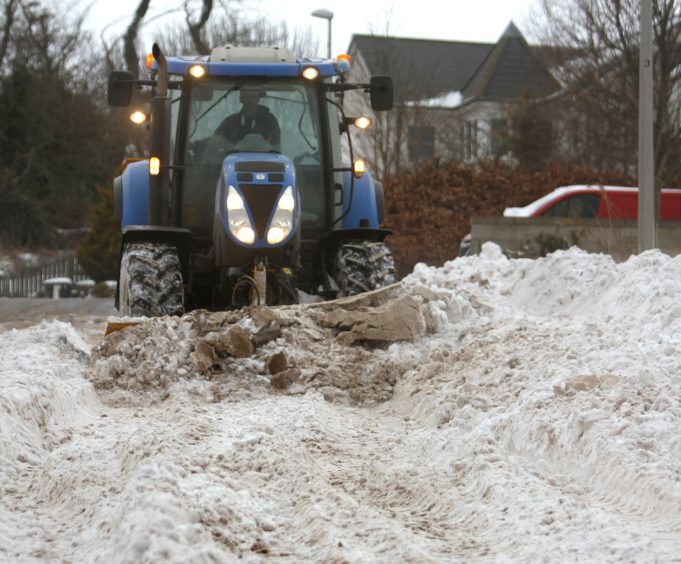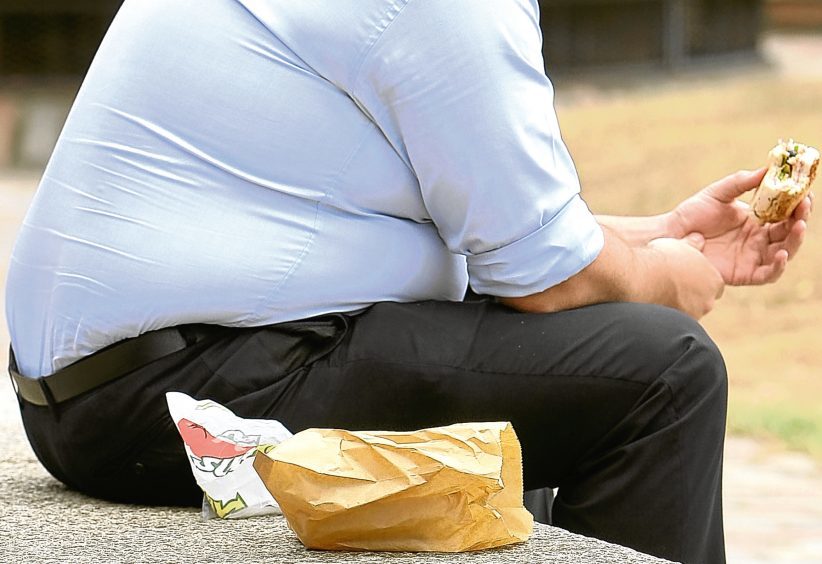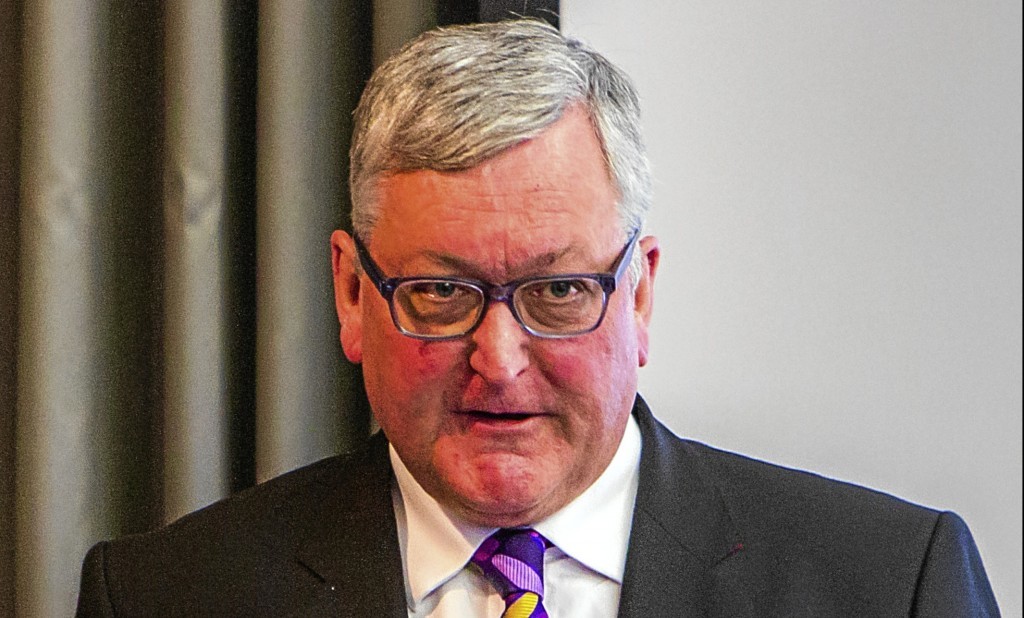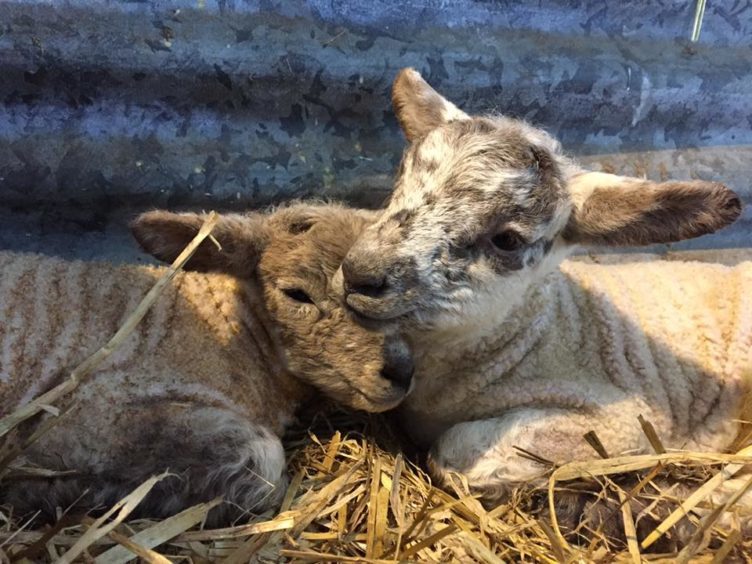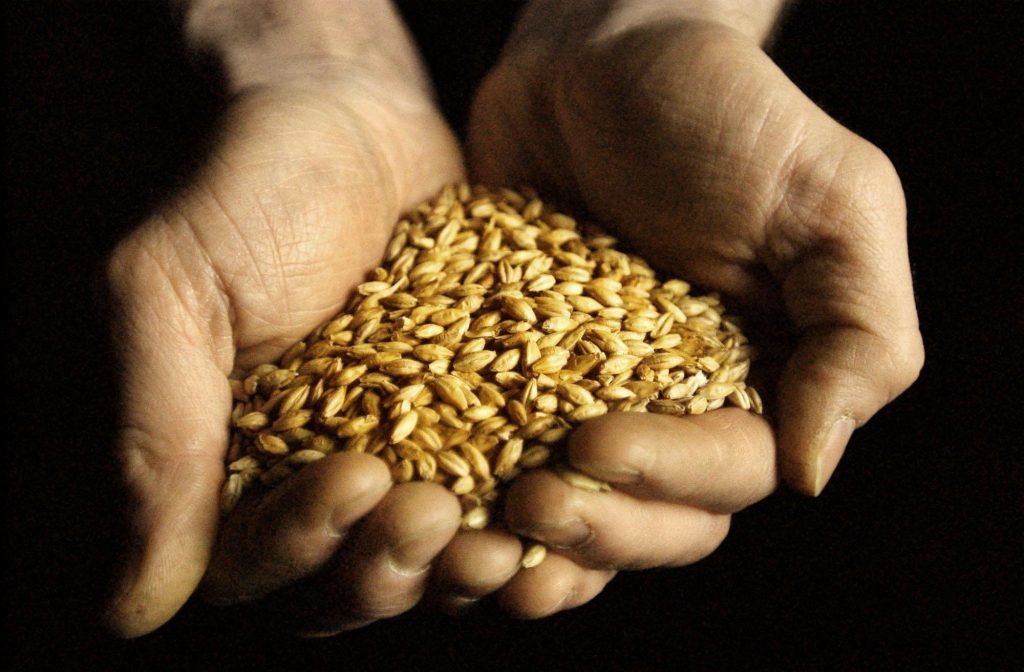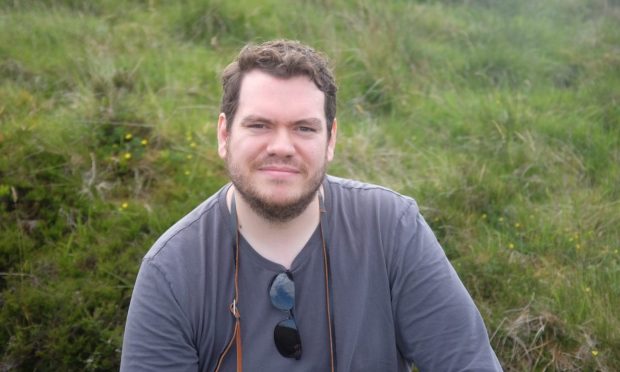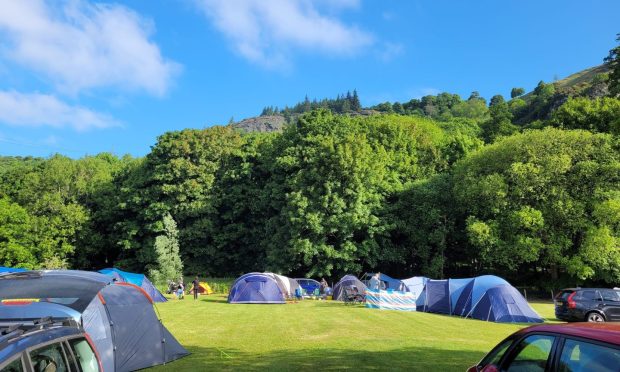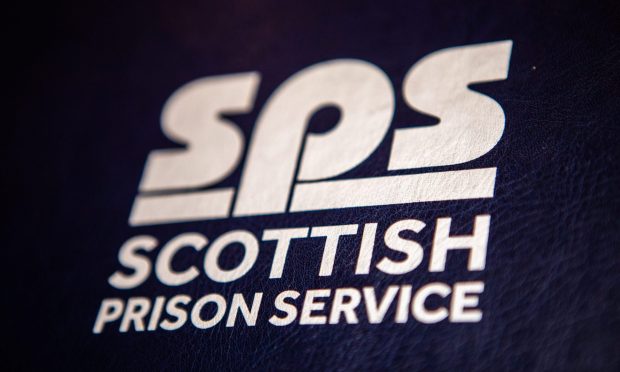The Perth-based Royal Scottish Geographical Society is pushing for Scotland to become the first part of the UK with a legal universal right to food. Michael Alexander reports.
According to the United Nations, about 8.4 million people are currently suffering from food insecurity in the UK.
That means they don’t know where their next meal is coming from.
The scale of the problem was highlighted in February when The Courier ran a series of articles on child poverty which illustrated that up to 40% of people in some parts of Tayside and Fife are dependent on food banks.
For most people, food is something largely taken for granted. For others, rising poverty, cuts to social welfare programmes and high levels of precarious low-paid work have been blamed for many people barely being able to keep their heads above financial water.
The Scottish Government is currently in the process of working on the Good Food National Bill and there are signs that this may include the incorporation of the right to food to help tackle deep-rooted social and economic equalities.
It might mean, for example, that social security reforms could be blocked if they were considered to risk making the problem of food insecurity worse.
But growing frustration at the relatively slow pace of change has prompted the Perth-based Royal Scottish Geographical Society (RSGS) to devote the whole of its latest ‘The Geographer’ magazine to an exploration of the issues.
Featuring contributors from world-renowned organisations such as the Joseph Rowntree Foundation, Oxfam, Nourish Scotland and the Scottish Food Commission, as well as individuals from the academic world, the magazine unpacks the many food issues currently alive in Scotland.
From the growing call on food banks and increasing food poverty, to the obesity crisis, sugar tax and environmental sustainability, the articles outline what is going wrong, and what could be done to resolve these problems.
Chief Executive of the RSGS Mike Robinson is hoping to prompt the Government into action, and form the basis for the Good Food Nation consultation.
He said: “The issues surrounding food are complex and interconnected.
“To produce a legislative framework to improve these systems in Scotland therefore requires a joined-up and holistic approach: something geography is uniquely placed to achieve.
“Our latest magazine, produced with help from leading experts across the gamut of the subject, provides a range of informative and impartial ideas and solutions to help build a Good Food Nation in Scotland.
“But, most importantly, we hope that the magazine will act as a catalyst to push the consultations to the top of the political menu.”
There’s no doubt that food is one of those essentials that is easy to take for granted – until you don’t have any, that is.
The heavy snowfall during March brought this into sharp focus in Scotland.
Supermarkets emptied – and very quickly too. Milk, bread, fresh fruit and veg were nowhere to be seen, demonstrating just how fragile our food system can be.
Food is, of course, an issue that affects us all. In Scotland, we grow and produce a breadth of high quality food, though much of it is for export.
Yet some people still suffer from too little, hence food banks and issues of food poverty.
Others suffer from too much in the form of obesity.
Farmers are pressurised to keep costs low, production high and to protect the environment.
And the whole food system seems to be genetically and practically precarious.
With the announcement of the Good Food Nation consultation and bill, the Government raised the expectation of addressing these wide-ranging issues in Scotland.
Indeed, Cabinet Secretary Fergus Ewing MSP told the Parliament that a Good Food Nation in Scotland would be one in which “people from every walk of life take pride, pleasure and benefit from the food that they buy, serve and eat day by day”.
But the problem now, said Mr Robinson, is that the Government won’t commit to a date for the consultation, and there is a growing impatience amongst stakeholders to simply get on with the work.
One of the most significant bodies calling for this consultation is Nourish Scotland, an NGO campaigning on food justice issues in Scotland.
Executive director Pete Ritchie suggests in the magazine that the limited overlap between what the country produces and what it eats is particularly striking.
“Well over 90% of our lamb goes south, along with 90% of our wild and farmed fish, and most of our soft fruit, potatoes and veg,” he said.
“On a world index of food system dislocation, we would be in the premier league.”
In Ritchie’s Good Food Nation, he would place an emphasis on rebuilding Scotland’s local food economy.
Instead of focusing our food system on export, he would encourage greater connectivity between the country’s food, sea, land and people as is the case in France and Brazil.
“Our Good Food Nation must eat more of what it produces and produce more of what it eats,” he added.
“Like the new Nordic Diet, we need to ground our cuisine more strongly in what grows well here – root crops, soft fruit, oats and barley.”
But as Ritchie stresses, these changes must evolve in tandem with a commitment by the Government to ensure affordable access to good food. And not just for some, for all.
“It’s still the case that to eat the government’s recommended diet would cost some households 30-40% of their income,” he said, “and 10% of our children are growing up in households which are food insecure. A core expectation of our Good Food Nation is that ‘all’ means all.”
The cost of food is something writer and activist Professor Raj Patel has been engaged with throughout his career, working in both academia and for groups such as the World Bank and World Trade Organisation.
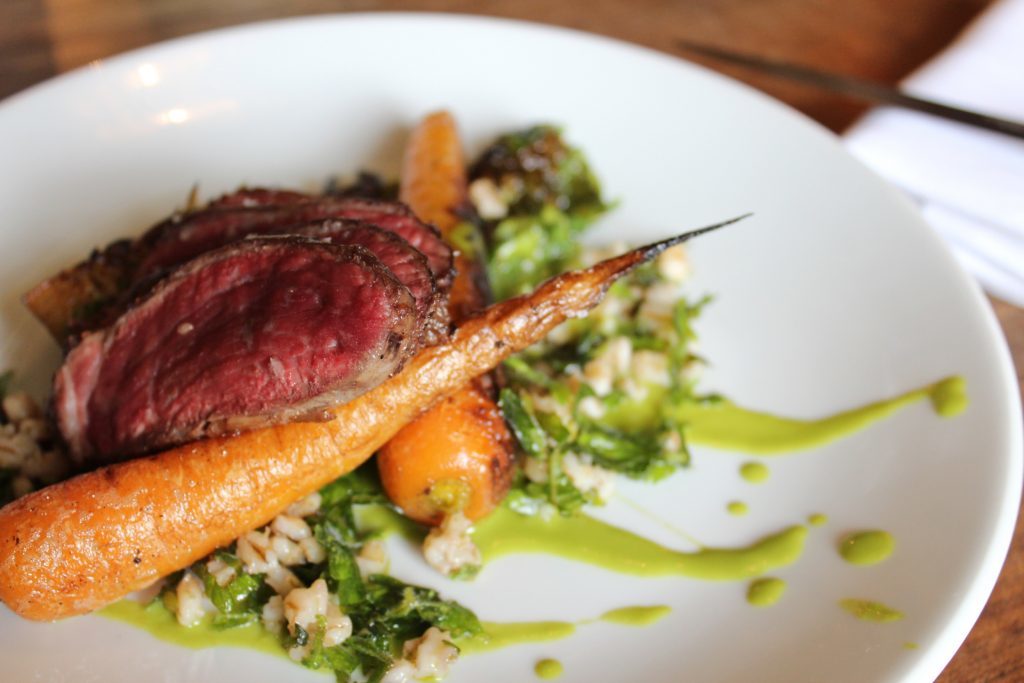
And through his research he suggests that making food cheaper will not necessarily bring equality in our highly interconnected food system.
“Around the world, no matter which country, working and poor people struggle to be able to eat five fresh fruits and vegetables a day. But… drop the price of food and who gets squeezed? It’s not the shareholders or executives in the food industry who are hurt by lower priced food… it’s the workers whose labour makes food possible.”
Another important facet in building a Good Food Nation in Scotland is ensuring that the food systems are sustainable. And in enabling this to flourish, legal scholar Olivier De Schutter suggests that rebuilding diversity is the key.
“If the changes that are required to build sustainable food systems could be summed up in a single word, it would be diversity,” he said. ” A series of shifts must occur in parallel – and diversity is at the heart of them.”
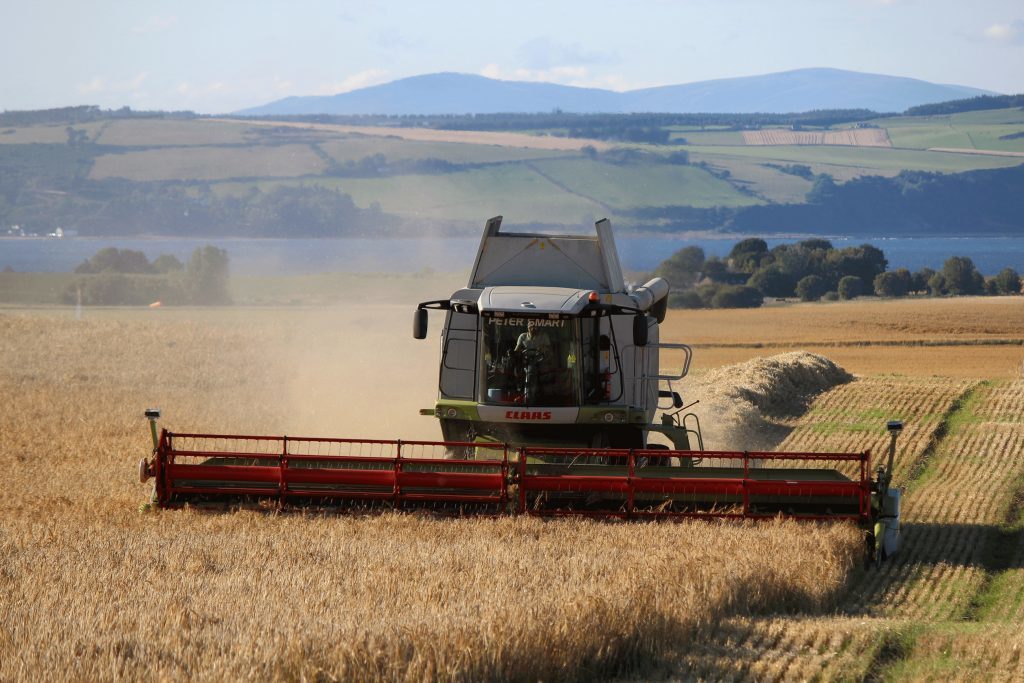
Of these shifts, De Schutter argues agro-biodiversity, wild biodiversity and genetic diversity must be urgently restored to limit land degradation, encourage the repopulation of pollinators such as bees in the countryside, and make our food supply less vulnerable to viruses and disease.
But, for this to be successful, he argues these moves must go hand-in-hand with changes to our diets, particularly in Europe where on average we eat too little fruit and veg, nuts, pulses and seeds, and legislation to ensure political power in our food systems is not only in the hands of a small number of key players.
He added: “Change on a single front will not suffice… joined-up food and farming policies are required, and these policies must signpost a new direction of travel. Diversity – of diets, of crops and livestock, of food system actors – can provide the new paradigm.”
The Scottish Government told The Courier it continues to have meetings with stakeholders that will continue following parliamentary recess.
A Scottish Government spokesperson said: “We want to see a country where people take pride and pleasure in, and benefit from, the food they buy and eat every day.
“The Scottish Government remains committed to achieving our ambition for Scotland to continue to develop and grow as a Good Food Nation.
“Much has been done and more activity is planned to deliver factors which play an important role in ensuring that everyone in Scotland, eats well and has a healthy weight.
“We are encouraged and grateful for the Royal Scottish Geographical Society’s support of our ambition.”
